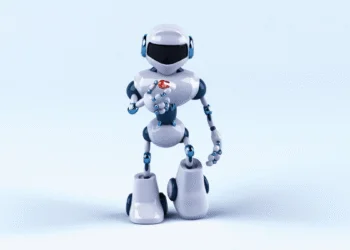Google is set to introduce an experimental AI writing assistant feature in Chrome, aiming to assist users in expressing themselves with confidence across various online platforms, from social media to product reviews. The move follows a trend of AI integration into popular software like Gmail and Microsoft Office, reflecting the inevitable evolution towards AI-driven interfaces.
The new AI writing assistant in Chrome, to be initially introduced as a right-click feature in limited testing, extends beyond traditional documents and emails. However, its implications are significant, potentially impacting billions of online interactions. Users will have the option to generate statistically likely responses, adjust tone, and modify length, fundamentally altering the way content is created and shared online.

While AI text generation has its place in certain contexts, its suitability for social interactions remains questionable. In environments where authenticity is valued, such as comment sections or social media threads, AI-generated responses may come across as insincere or spam-like.
Must Read:Lumiere: Google’s Advanced AI Video Generator: Meets Deep Fake Worries
Moreover, the widespread adoption of AI writing tools could exacerbate existing challenges, such as the dominance of SEO-driven content in search results. By introducing more synthetic content, Google risks further diluting the quality of search results and perpetuating a cycle of AI-trained, AI-generated material.
This move towards AI-driven content creation reflects a broader trend of automation in online platforms, signaling a shift towards increasingly assertive automation across various aspects of the internet. However, it also raises concerns about the future of authentic human interaction online and the integrity of user-generated content.
While AI-powered browsers hold the potential to streamline online communication, their widespread adoption may also fundamentally alter the nature of online interactions and content creation. As technology continues to evolve, the balance between automation and human input in online spaces remains a key consideration for the future of the internet.
Recommended Reading:
Google’s Gemini AI Fake Video: The Deceptive Demo Video and Trust Deficit
Google’s VideoPoet: Multimodal AI Tool for Next-Gen Video Generation
Google Integrates YouTube to Bard: Check Here how it works and help users


















